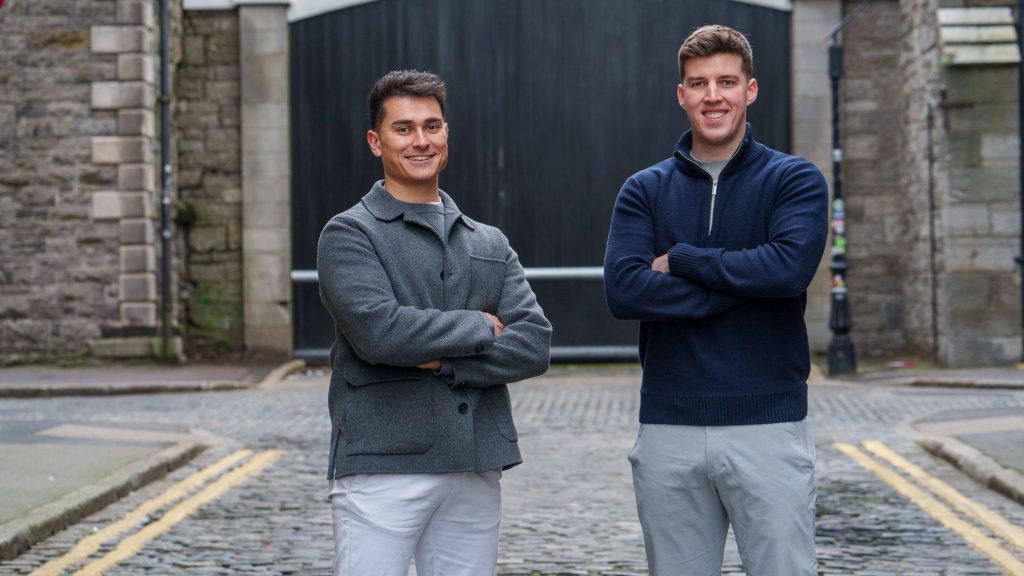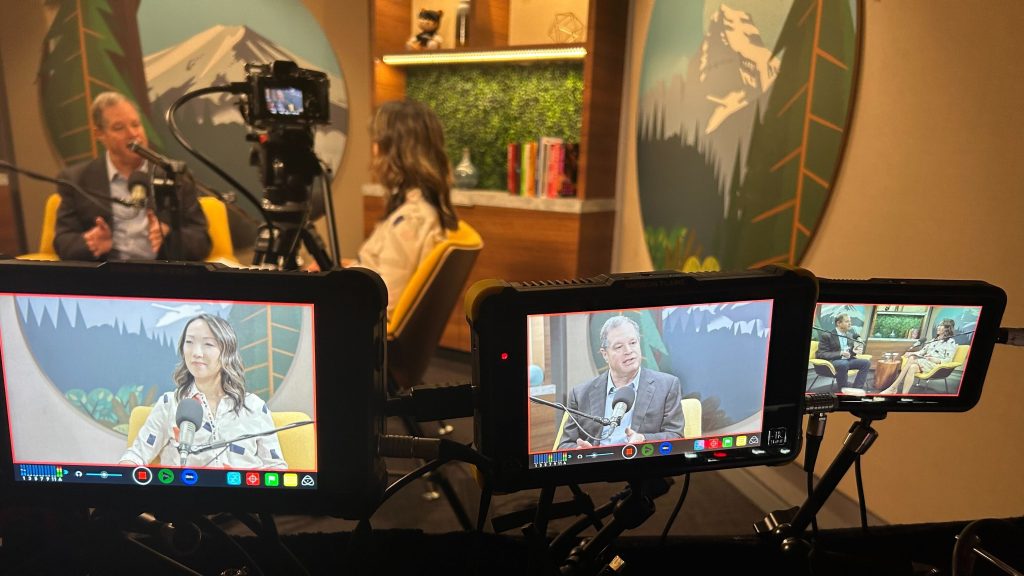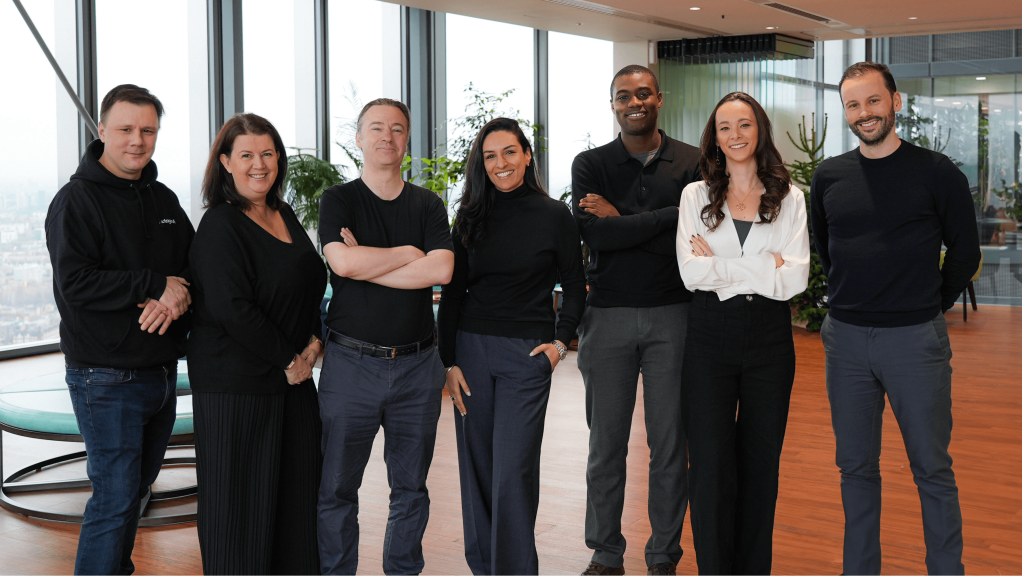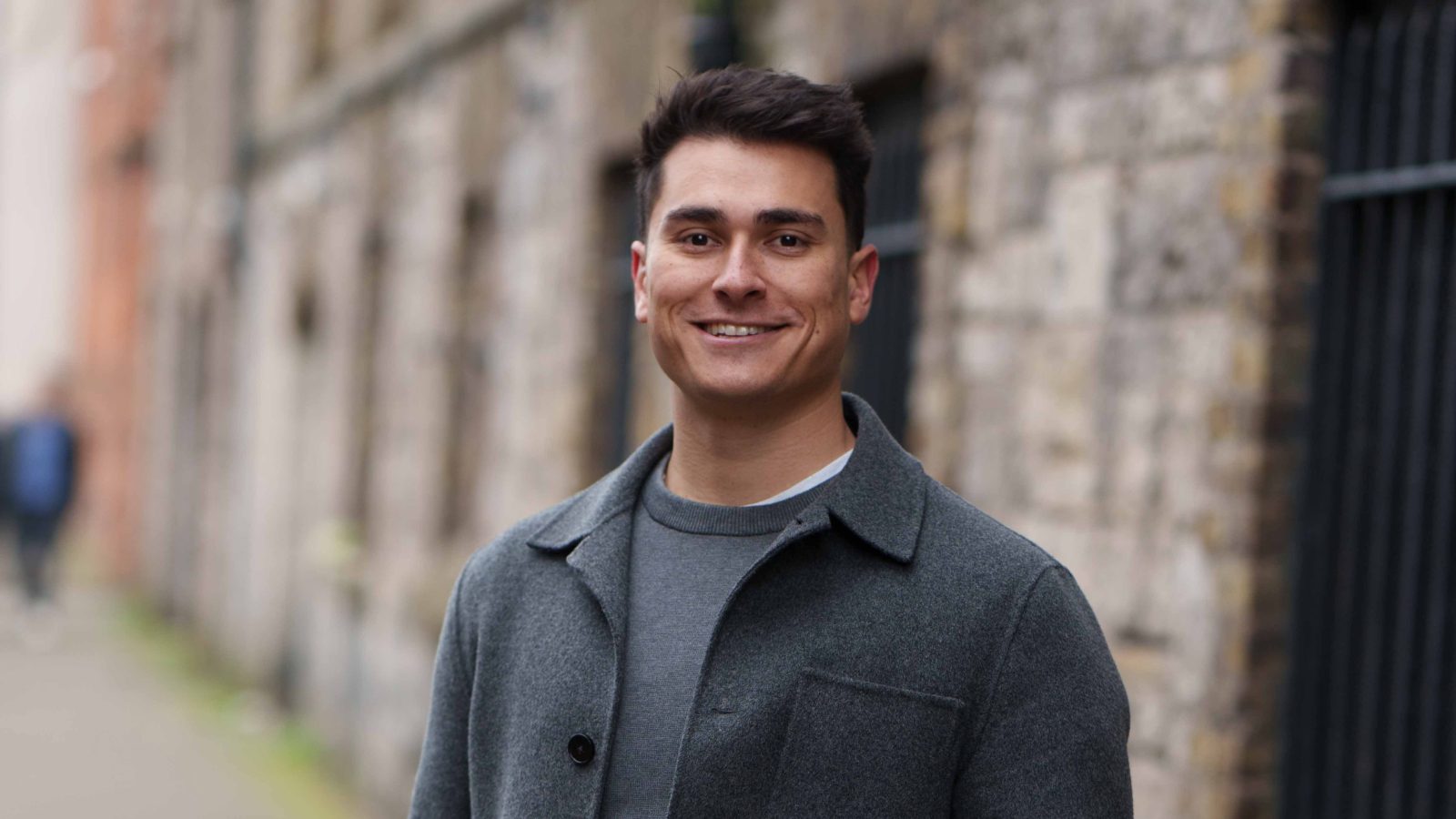After investing in Protex AI’s Series B, investors Jessica Bartos and Nowi Kallen sat down with CEO Dan Hobbs to discuss why he and co-founder Ciarán O’Mara started Protex AI, why they partnered with Salesforce Ventures, lessons for entrepreneurs, and much more. The following is a transcript of their conversation, lightly edited for clarity and style.
Jesscia: What inspired you to start Protex AI?
Dan: Protex AI began with a conversation Ciaran had with a family member. At the time, Ciaran was working on a PhD in computer vision, and I had just exited a previous startup. We met up at a pub in Dublin and started brainstorming ways to apply this cutting-edge technology. Our early ideas were broad and sometimes even a bit outlandish — everything from analyzing shopping trends to deploying drone “guard dogs” for home security.
None of those concepts really resonated, though. We wanted our work to have a meaningful, positive impact on people’s lives. That’s when Ciaran’s family member told us about a tragic incident at one of her factory sites. Initially, everyone believed it was just a freak accident. But after reviewing CCTV footage, it became clear that the risky behaviors leading up to the accident had been happening frequently. If someone had recognized and addressed those patterns earlier, the loss could have been prevented.
This realization sparked our core mission. We asked ourselves: Why wait for a tragedy to happen before taking action? With computer vision, we could detect hazardous trends and intervene before anyone got hurt. That was the problem we aimed to solve — preventable workplace accidents — and it’s guided us ever since.
Over time, our vision has evolved from simply identifying risk factors to actively helping organizations transform their safety culture. By using technology to highlight and address dangerous behavior patterns before harm occurs, we’re working toward a future where safety isn’t just a response to accidents, but a proactive measure that keeps everyone out of harm’s way.
Nowi: Why was Protex AI seeking to raise a new round of funding?
Dan: We’ve been aiming for significant global growth from day one, and to achieve that, we needed the right partners who share our international vision. We’ve always aspired to build a truly global company with teams and operations around the world, and reaching that scale requires not only capital, but also investors who can open doors in multiple markets.
In this round, we weren’t raising funds out of necessity, but rather out of the desire to accelerate our growth trajectory. The market is at a pivotal point where AI adoption is rapidly increasing, and we’re perfectly positioned to meet that demand. To capitalize on this momentum, we wanted backers who could support our expansion, not just financially, but strategically — partners with a strong global network and a track record of helping companies scale internationally. With the right resources and the right investors, we’re confident we can deliver even more value to our clients and push the boundaries of what our technology can achieve on a worldwide stage.
Jessica: Why did you decide to partner with Salesforce Ventures for this fundraise?
Dan: What truly attracted us to partner with Salesforce Ventures was the alignment in vision and ambition. You’re a globally recognized leader in enterprise technology, and that scale and reach is exactly what we aspire to achieve with our own business. We knew that working with a partner who has already navigated the journey to ‘mega-scale’ would be invaluable.
From our earliest conversations, we were impressed by how well your team understood our mission and the market we operate in. Rather than imposing a one-size-fits-all approach, you asked thoughtful questions, offered strategic insights, and showed genuine enthusiasm for our long-term vision. The level of collaboration, support, and mutual respect was evident right away.
It felt less like a transactional investment and more like a partnership with people who truly want to see us succeed.
Nowi: What role do you see Salesforce Ventures playing in your company’s growth and success?
Dan: Salesforce Ventures brings an invaluable depth of knowledge and experience to our journey. You’ve seen the path to global scale many times before, and that kind of seasoned guidance is rare. Partnering with you helps illuminate the route forward, making it easier to navigate challenges and seize new opportunities.
Beyond the strategic insights, Salesforce Ventures’ global reach and industry connections — particularly in manufacturing — will be a game-changer for us. Your introductions can open doors that would otherwise remain closed, accelerating our growth and giving us a foothold in key markets.
What’s more, being associated with Salesforce instills confidence in our customers and partners. Working alongside such a trusted and well-established leader reassures them that we’re building something with lasting value and substance.
Jessica: What’s the best piece of advice you’ve ever received as a founder?
Dan: Think big. Too often, founders limit themselves by focusing only on immediate challenges or local markets. The aim should be to transform industries and improve people’s lives on a global scale.
At the same time, remember that thinking big doesn’t mean overcomplicating things. Keep your strategy and operations as streamlined as possible. You can move quickly without sacrificing quality, and you can maintain simplicity while still aiming for massive impact.
Nowi: What have you learned from your fundraising journey?
Dan: A key lesson is that “quality” and “velocity” aren’t mutually exclusive. Yes, you should strive to move fast — whether it’s hiring talent, building products, or entering new markets — but do it thoughtfully. Ensure that every decision maintains a high standard. By combining a grand, long-term vision with a disciplined, focused approach, you set yourself up for success and create a compelling story that both traditional and corporate venture investors will want to support.
Jessica: As a founder, what’s one question you wish people would ask you, but don’t?
Dan: “How are you doing?” It’s easy to focus on the numbers, targets, and spreadsheets, but we sometimes forget the humans behind those metrics. At the end of the day, it’s people who drive the business forward. Checking in with each other’s well-being isn’t just nice — it’s essential. When we support each other, it helps create a solid foundation for sustainable growth and keeps the work both meaningful and enjoyable. I wish people would ask how I’m doing, and I make a point to ask others the same. Because if we’re not taking care of each other, we’re missing out on the real potential behind the spreadsheets.
Nowi: If you were starting Protex AI today, what would you do differently?
Dan: Honestly, I wouldn’t change much. I’m not the type of person who carries regrets. That said, if I had the chance to start over, I’d be more focused right from the beginning on which customers we’re best equipped to serve. Early on, we tried to cater to too many different markets, even ones like construction where we weren’t as strong. Knowing what I know now, I’d narrow our focus sooner, stay true to our core strengths, and commit to delivering real value to the segments of the market where we excel.
Jessica: What’s something you’ve changed your mind about since starting Protex AI?
Dan: I’ve changed my mind about how quickly things happen, especially when working with large enterprises. Internally, we move at breakneck speed — constantly building the plane as we fly. But I’ve learned that our clients don’t always operate the same way. They have processes, structures, bureaucracy, and internal politics that naturally slow things down.
Early on, we assumed everyone worked at our pace. Over time, I realized it’s crucial to understand and respect each client’s way of doing things. Rather than trying to force our timeline on them, we need to adapt, guide them, and find the right balance. Of course, we still encourage urgency when needed, but now we do so with a better understanding of their reality.
Nowi: What’s the most controversial opinion you have about building a business?
Dan: My most controversial opinion is that starting a company isn’t nearly as risky as everyone makes it out to be. People tend to view entrepreneurship as a high-stakes gamble, but in reality, the experience you gain — touching every part of the business from product to sales to marketing — is invaluable. Even if your venture doesn’t take off, you emerge with skills and insights that make you far more valuable in the job market than when you started.
In other words, failure isn’t the catastrophe people fear. It’s a fast-track to growth. If your startup doesn’t succeed, you’ll likely find yourself better prepared and more employable than before. You’re not losing ground; you’re investing in your own capabilities. From this perspective, building a business is less of a reckless leap and more of a strategic career move.
Jessica: What advice would you give to other founders trying to raise capital?
Dan: Take the time to really get to know a VC before accepting any investment. Look beyond the check — find out if they have a dedicated platform team or other internal support resources that can actually help you grow. If their involvement feels like an afterthought or a side favor, it’s not going to deliver the value you need. Instead, look for a partner who has clearly defined structures, processes, and support systems in place. That way, they can offer meaningful guidance, introductions, and resources, rather than just capital.
Also know that money alone isn’t enough — you need investors who can really contribute. The best relationships are the ones where the investor’s support is consistent, proactive, and truly aligned with your company’s needs. Take the time to find partners who understand your market, share your vision, and have the infrastructure to help you scale. That’s how you transform a funding round into a strategic advantage.
Nowi: What excites you about the future of Protex AI?
Dan: I’m incredibly optimistic because we’re operating in a market that’s still in its infancy. Many organizations are just beginning to tap into the potential of cutting-edge technology and, in many cases, haven’t fully embraced AI yet. This means there’s a huge opportunity ahead. We want to be at the forefront — one of the key players, if not the leader — helping to define how this industry leverages AI to safeguard workers and streamline operations on a global scale.
Right now, the industry is moving from zero to one: shifting from an environment where workplace safety and efficiency measures are incremental improvements on existing systems, to an entirely new paradigm driven by AI and computer vision. As the industry evolves, we’ll help guide it from these initial steps toward a more mature ecosystem — one where preventing accidents, optimizing workflows, and ensuring regulatory compliance are seamlessly integrated into everyday operations. Our goal is to set the standard for what’s possible, using technology not merely as a tool for refinement, but as a catalyst for fundamentally reimagining how we protect and empower the workforce.
_
To learn more about Protex AI, visit their website. To receive Salesforce Ventures content directly to your inbox, sign up for our newsletter.






